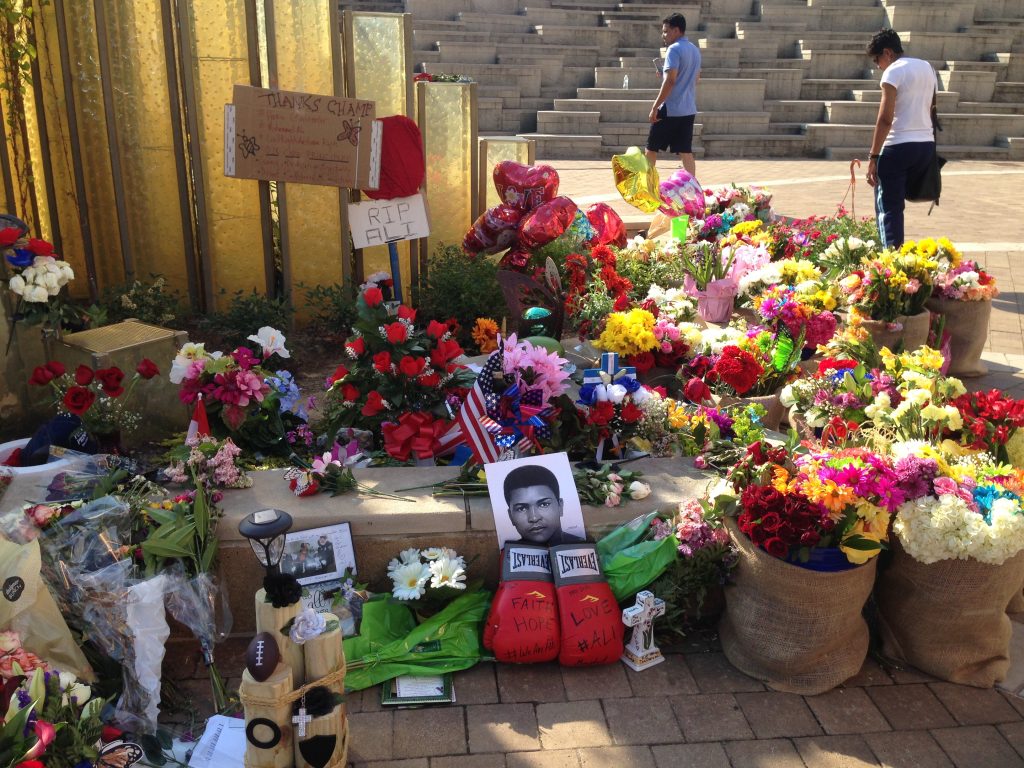- From the 8th floor at the Galt House.
- Visitors in the rain, Saturday morning (before 8am).
- Tuesday afternoon outside the Ali Center.
Ali’s boxing, and then his decisions involving the draft and his statements on civil rights, made him a cultural icon and a political figure, one of the United States’s most visible black citizens. His fame as an athlete provided him the platform--the audience, the media access, and the economic resources to remain independent and maintain his stance when he was unable to box--to not only express his opinion, but demonstrate his willingness to sacrifice a great deal of good will and money. This was citizen action not through the act of voting to express an individual political position, but through advocacy and persuasion and modeling.
In my class on American Wilderness last semester, we naturally read Thoreau and Emerson (bear with me a moment here). One piece of our discussion of their work was their effort to construct a national literature to help define a distinct American identity, rooting both American letters and nationalism in the United States’ unique relationship with the natural world. They embraced their Americanness, and Americans claim them.
But Thoreau also famously refused to pay taxes to a state government that was complicit in racial slavery and the Mexican-American War, spent time in jail as a consequence, and wrote Civil Disobedience to explain his rationale. In that essay, he pointed to a tension between individual conscience and legislation and argued that men can “serve the state with their consciences also.” That contribution was no less a contribution to his project of encoding American identity in American letters than his celebration of nature.
And I think it’s also a key to understanding Ali. Both sought to articulate what it means to be an American. Both engaged in a similar project, and at times in similar ways. Where Thoreau sought economic independence by simplifying his needs during his experiment at Walden Pond, Ali could lean on his existing wealth for economic support as he endangered his earning power with political action. Where Thoreau sought to contribute to a national canon that would perpetuate American ideals, Ali used his existing fame to highlight the uneven application of those professed American ideals. Both identified racism and imperialism as American practices at odds with the nation’s professed ideals, and both worked to hold it accountable to those ideals. In short, neither rejected his nation. Instead, each seized on the more admirable characteristics of his country--the ability to act and speak in accord with one’s conscience--to combat its least admirable practices, acting alike to serve a nation not as it was, but as they believed it should be.
I will admit one major difference.
Ali was the better poet.

"I've wrestled with alligators,/I've tussled with a whale./I done handcuffed lightning/And throw thunder in jail./You know I'm bad./Just last week, I murdered a rock,/Injured a stone, hospitalized a brick./I'm so mean, I make medicine sick."--Muhammad Ali


